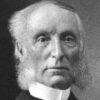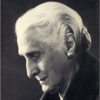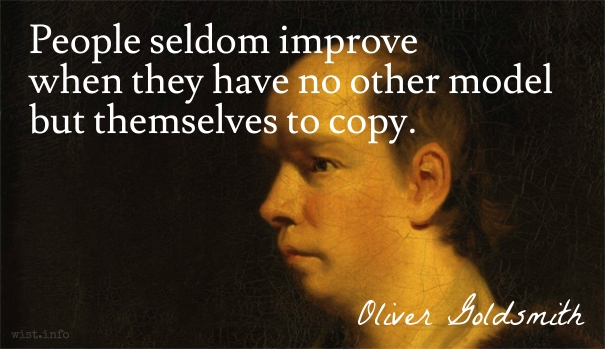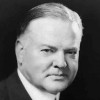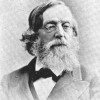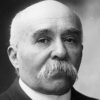Whence had you this illustrious name?
From virtue and unblemish’d fame.
By birth the name alone descends;
Your honour on yourself depends:
Think not your coronet can hide
Assuming ignorance and pride.
Learning by study must be won,
‘Twas ne’er entail’d from son to son.John Gay (1685-1732) English poet and playwright
“The Pack-Horse and Carrier (To a young Nobleman),” ll. 41-42
(Source)
Some printings of the poem leave off the prologue, of which this is a part.
Quotations about:
self-improvement
Note not all quotations have been tagged, so Search may find additional quotes on this topic.
I am still learning.
[Ancora imparo.]
Michelangelo (1475-1564) Italian artist, architect, poet [Michelangelo di Lodovico Buonarroti Simoni]
(Attributed)
Also rendered Anchora imparo. This is often described as a daily mantra of Michelangelo's. This association can be traced to Richard Duppa, The Lives and Works of Michael Angelo and Raphael (1806) [tr. Hazlitt]. Duppa misattributed to Michelangelo a drawing by Domenico Giuntalodi, which included the saying. The phrase itself was popular during the 16th Century.
While there's no indication that Michelangelo did not say this, or agree with the sentiment, it does not seem to have been solidly cited to him, or shown to be a personal motto, let alone being original to him.
More discussion: Michelangelo - Wikiquote.
Always dream and shoot higher than you know you can do. Don’t bother just to be better than your contemporaries or predecessors. Try to be better than yourself.
William Faulkner (1897-1962) American novelist
“The Art of Fiction No. 12,” interview by Jean Stein, The Paris Review (Spring 1956)
(Source)
On being a good novelist.
Usually one’s cooking is better than one thinks it is. And if the food is truly vile, as my ersatz eggs Florentine surely were, then the cook must simply grit her teeth and bear it with a smile — and learn from her mistakes.
Julia Child (1912-2004) American chef and writer
My Life In France, “Le Cordon Bleu,” sec. 2 (2006)
(Source)
Why do people read? The answer, as regards the great majority, is: “They don’t.”
Bertrand Russell (1872-1970) English mathematician and philosopher
“Flight from Reality,” New York American (1932-03-02)
(Source)
The cardinal method with faults is to overgrow them and choke them out with virtues.
The noble-minded worry about their lack of ability, not about people’s failure to recognize their ability.
[君子病無能焉、不病人之不己知也]
Confucius (c. 551- c. 479 BC) Chinese philosopher, sage, politician [孔夫子 (Kǒng Fūzǐ, K'ung Fu-tzu, K'ung Fu Tse), 孔子 (Kǒngzǐ, Chungni), 孔丘 (Kǒng Qiū, K'ung Ch'iu)]
The Analects [論語, 论语, Lúnyǔ], Book 15, verse 19 (15.19) (6th C. BC – AD 3rd C.) [tr. Hinton (1998)]
(Source)
(Source (Chinese)). See also 1.16, 4.14, 14.30. Legge and other early translators numbered this, as shown below, 15.18. Alternate translations:
The superior man is distressed by his want of ability. He is not distressed by men's not knowing him.
[tr. Legge (1861), 15.18]
The trouble of the superior man will be his own want of ability: it will be no trouble to him that others do not know him.
[tr. Jennings (1895), 15.18]
A wise and good man should be distressed that he has no ability ; he should never be distressed that men do not take notice of him.
[tr. Ku Hung-Ming (1898), 15.18]
The noble man is pained over his own incompetency, he is not pained that others ignore him.
[tr. Soothill (1910), 15.18]
The proper man is irritated by his incapacities, not irritated by other people not recognizing him.
[tr. Pound (1933), 15.18]
A gentleman is distressed by his own lack of capacity; he is never distressed at the failure of others to recognize his merits.
[tr. Waley (1938), 15.18]
The perfect gentleman complains about his own inabilities; not about people’s ignorance of himself.
[tr. Ware (1950)]
The gentleman is troubled by his own lack of ability, not by the failure of others to appreciate him.
[tr. Lau (1979)]
The gentleman is pained at the lack of ability within himself; he is not pained at the fact that others do not appreciate him.
[tr. Dawson (1993)]
A gentleman resents his incompetence; he does not resent his obscurity.
[tr. Leys (1997)]
The gentleman worries about his incapability; he does not worry about men not knowing him.
[tr. Huang (1997)]
A gentleman worries about that he does not have the ability, does not worry about that others do not understand him.
[tr. Cai/Yu (1998), #403]
Exemplary persons (junzi) are distressed by their own lack of ability, not by the failure of others to acknowledge them.
[tr. Ames/Rosemont (1998)]
The gentleman takes it as a fault if he is incapable of something; he does not take it as a fault if others do not know him.
[tr. Brooks/Brooks (1998)]
The gentleman is distressed by his own inability, rather than the failure of others to recognize him.
[tr. Slingerland (2003)]
The gentleman is troubled by his own lack of ability. He is not troubled by the fact that others do not understand him.
[tr. Watson (2007)]
The gentleman is worried about his own lack of ability and not about the fact that others do not appreciate him.
[tr. Chin (2014)]
A Jun Zi is disappointed about his own incompetency. He is not distressed that he is not known by others.
[tr. Li (2020)]
The greatest of sages can commit one mistake, but not two; he may fall into error, but he doesn’t lie down and make his home there.
[En un descuido puede caer el mayor sabio, pero en dos no; y de paso, que no de asiento.]
Baltasar Gracián y Morales (1601-1658) Spanish Jesuit priest, writer, philosopher
The Art of Worldly Wisdom [Oráculo Manual y Arte de Prudencia], § 214 (1647) [tr. Maurer (1992)]
(Source)
(Source (Spanish)). Alternate translations:
The wisest man may very well fail once, but not twice; transiently, and by inadvertency, but not deliberately.
[Flesher ed. (1685)]
A wise man may make one slip but never two, and that only in running, not while standing still.
[tr. Jacobs (1892)]
The wisest of men may slip once, but not twice, and that only by chance, and not by design.
[tr. Fischer (1937)]
He has not learned the lesson of life who does not every day surmount a fear.
Ralph Waldo Emerson (1803-1882) American essayist, lecturer, poet
“Culture,” The Conduct of Life, ch. 4 (1860)
(Source)
Remember that there is nothing noble in being superior to some other man. The true nobility is in being superior to your previous self.
W. L. Sheldon (1858-1907) American lecturer, ethicist [Walter Lorenzo Sheldon]
“What to Believe: An Ethical Creed,” Ethical Addresses (Apr 1897)
(Source)
Often incorrectly attributed to Hemingway. More discussion: There Is Nothing Noble in Being Superior to Some Other Man. The True Nobility Is in Being Superior to Your Previous Self – Quote Investigator.
The conflict between what one is and who one is expected to be touches all of us. And sometimes, rather than reach for what one could be, we choose the comfort of the failed role, preferring to be the victim of circumstance, the person who didn’t have a chance.
Merle Shain (1935-1989) Canadian journalist and author
Hearts That We Broke Long Ago, Part 3, ch. 7 (1983)
(Source)
Both Christianity and alcohol have the power to convince us that what we previously thought deficient in ourselves and the world does not require attention; both weaken our resolve to garden our problems; both deny us the chance to fulfilment.
Alain de Botton (b. 1969) Swiss-British author
The Consolations of Philosophy, ch. 6 “Consolation for Difficulties” (sec. 19) (2000)
(Source)
Sometimes attributed to, but actually summarizing, Friedrich Nietzsche, who himself wrote of "the two great European narcotics, alcohol and Christianity" (Twilight of the Idols, "Things the Germans Lack" (sec. 2) (1888) [tr. Ludovici]).
Don’t be yourself — be someone a little nicer.
Mignon McLaughlin (1913-1983) American journalist and author
The Second Neurotic’s Notebook, ch. 4 (1966)
(Source)
Every day of our lives we are on the verge of making those changes that would make all the difference.
Mignon McLaughlin (1913-1983) American journalist and author
The Neurotic’s Notebook, ch. 4 (1963)
(Source)
I think one must engage in politics — using the word in a wide sense — and that one must have preferences: that is, one must recognise that some causes are objectively better than others, even if they are advanced by equally bad means. As for the nationalistic loves and hatreds that I have spoken of, they are part of the make-up of most of us, whether we like it or not. Whether it is possible to get rid of them I do not know, but I do believe that it is possible to struggle against them, and that this is essentially a moral effort. It is a question first of all of discovering what one really is, what one’s own feelings really are, and then of making allowance for the inevitable bias.
George Orwell (1903-1950) English writer [pseud. of Eric Arthur Blair]
“Notes on Nationalism” (May 1945)
(Source)
Age is truly a time of heroic helplessness. One is confronted by one’s own incorrigibility. I am always saying to myself, “Look at you, and after a lifetime of trying.” I still have the vices that I have known and struggled with — well it seems like since birth. Many of them are modified, but not much. I can neither order nor command the hubbub of my mind.
Florida Scott-Maxwell (1883-1979) American-British playwright, author, psychologist
The Measure of My Days (1968)
(Source)
Strive to be the greatest Man in your Country, and you may be disappointed; Strive to be the best, and you may succeed: He may well win the race that runs by himself.
Benjamin Franklin (1706-1790) American statesman, scientist, philosopher, aphorist
Poor Richard’s Almanack (Jan 1747)
(Source)
But since it is no more in a Man’s Power to think than to look like another, methinks all that should be expected from me is to keep my Mind open to Conviction, to hear patiently and examine attentively whatever is offered me for that end; and if after all I continue in the same Errors, I believe your usual Charity will induce you rather to pity and excuse than blame me.
Benjamin Franklin (1706-1790) American statesman, scientist, philosopher, aphorist
Letter to Josiah and Abiah Franklin (13 Apr 1738)
(Source)
His parents.
One must not always think so much about what one should do, but rather what one should be. Our works do not ennoble us; but we must ennoble our works.
Meister Eckhart (c. 1260-1328?) German theologian, philosopher, mystic [a.k.a. Johannes Eckhart von Hochheim; Eckhart; Eckehart]
Work and Being (14th C.)
Note: I haven't found a text by that name in Eckhart's bibliography, nor this quotation anywhere connected with anything but that title or none at all.
Every fellow is really two men — what he is and what he might be; and you’re never absolutely sure which you’re going to bury till he’s dead.
George Horace Lorimer (1867-1937) American journalist, author, magazine editor
Old Gorgon Graham: More Letters from a Self-Made Merchant to His Son, ch. 12 (1904)
(Source)
You have to look at yourself objectively. Analyze yourself like an instrument. You have to be absolutely frank with yourself. Face your handicaps, don’t try to hide them. Instead, develop something else.
Audrey Hepburn (1929-1993) Belgian-English actress
Quoted in Barry Paris, Audrey Hepburn, ch. 4 (2002)
(Source)
Habits to be avoided, or corrected — the ones you are always criticizing in other people. You see, there’s profit to be derived everywhere; when you see or hear about some good example, you can imitate it, when you notice some habit that deserves censure, you can avoid it — or, if you’ve already got into it yourself, be at pains to correct it as soon as possible. Meanwhile, if you’ve a good eye for other people’s faults, don’t forget that they’re watching you.
[Illa etiam magis studeas cavere et vincere quæ tibi in aliis frequentius displicent. Ubique profectum tuum capies ut si bona exempla videas vel audias, de imitandis accendaris. Si quid autem reprehensibile confideraveris, cave ne idem facias, aut si aliquando fecisti, citius emendare te studeas. Sicut oculus tuus alios confiderat, sic iterum ab aliis notaris.]
Thomas à Kempis (c. 1380-1471) German-Dutch priest, author
The Imitation of Christ [De Imitatione Christi], Book 1, ch. 25, v. 4-5 (1.25.4-5) (c. 1418-27) [tr. Knox-Oakley (1959)]
(Source)
See also Matthew 7:3-5.
(Source (Latin)). Alternate translations:
Study also to overcome in thyself those things that most mislike thee in other men, and take always some special profit in everyplace wheresoever thou come; as, if thou see any good example, enforce thee to follow it; and if thou see any evil example, look thou eschew it. As thy eye considereth the works of others, right so and in the same wise be thy works considered by others.
[tr. Whitford/Raynal (1530/1871)]
Study also to overcome in yourself those things that displease you most in others, and always gather some special profit from any place at all. For instance, if you see any good example, make yourself follow it, and if you see any evil example, see that you avoid it. As your eye considers the works of others, so and in the same manner your works are considered by others.
[tr. Whitford/Gardiner (1530/1955)]
Be carefull also to avoid with greater diligence those things in thy selfe which doe most displease thee in others. Gather some profit to thy soul out of every occasion whosoever thou be, so that if thou seest or hearest any good examples, be kindled and provoked to doe the like. But if thou perceive any thing worthy of reproofe, take heed of doing the same, or if thou have done it, labour quickly to amend it. As thou eyest other men so are other mens eies upon thee.
[tr. Page (1639), 1.25.16-19]
And, as this Knowledge of our Own Frailties and Necessities, it is greatly instrumental to our own Improvement, so we shall do well to profit by what we see in Others: and to be particularly concern'd for avoiding and subduing those Habits, which we find most usual and offensive in them with whom we Converse. For the Commonness of any Ill thing is so far from extenuating the Blame of those who copy after it, that it is the direct contrary; and such Examples should be lookt upon, as Marks which discover to us where the Rocks and Sands lie; such as are set to warn us off not to invite us in. Indeed a wise and good Man will turn Examples of all sorts, to his own Advantage. The Good he will make his Patterns, and strive to equal or excel them. The Bad he will by all means avoid; or if by Reflection the Deformity of his Neighbour's Actions happen to represent that of his own, he will be sure to do so no more; and think it a happy occasion, that he is thus grown Wiser by the Folly of others.
[tr. Stanhope (1696; 1706 ed.)]
Be particularly careful also to avoid chiefly those tempers and actions, that chiefly and most frequently displease thee in others. Wherever thou art, turn every thing to an occasion of improvement: if thou beholdeth or heareth of good examples, let them kindle in thee an ardent desire of imitation; if thou seest any thing blameable, beware of doing it thyself; or if thou hast done it, endeavor to amend it the sooner. As thy eye observeth, and thy judgment censureth others, so art thou observed and censured by them.
[tr. Payne (1803), 1.25.5]
Be careful also to avoid with great diligence those things in thyself, which do commonly displease thee in others. Gather some profit to thy soul wheresoever thou be; so as if thou seest or hearest of any good examples, stir up thyself to the imitation thereof. But if thou seest any thing worthy of reproof, beware thou do not the same. And if at any time thou hast done it, labour quickly to amend it. As thine eye observeth others, so art thou also noted again by others.
[ed. Parker (1841)]
Be careful also to avoid those things which more frequently displease thee on others. Wherever thou art, turn every thing to good account: if thou beholdest, or hearest of good examples, let them kindle in thee a desire of imitation; if thou observest any thing blameable , beware of doing it thyself; or, if thou hast occasionally done it, endeavour to amend it the sooner. As thy eye observeth others, so art thou observed by others in turn, and censured by them.
[tr. Dibdin (1851)]
Endeavour with greater zeal to guard against and conquer those vices which most frequently annoy thee in others. Turn all occasions to thy spiritual profit: so that if thou seest or hearest any good examples, thou mayest be spurred on to imitate them. But if thou observe anything that is blameworthy, take heed thou commit not the same; or if thou at any time hast done it, labour to correct thyself as soon as possible. As thine eye observeth others, so art thou in turn observed by others.
[ed. Bagster (1860)]
And strive also very earnestly to guard against and subdue those faults which displease thee most frequently in others. Gather some profit to thy soul wherever thou art, and wherever thou seest or hearest good examples, stir thyself to follow them, but where thou seest anything which is blameworthy, take heed that thou do not the same; or if at any time thou hast done it, strive quickly to amend thyself. As thine eye observeth others, so again are the eyes of others upon thee.
[tr. Benham (1874)]
Be careful also diligently to avoid those things in thyself, which do commonly displease thee in others. Gather some profit to thy soul wheresoever thou art; so that if thou seest any good examples, stir up thyself to the imitation thereof. But if thou observe anything worthy of reproof; beware thou do not the same. And if at any time thou hast done it, labour quickly to amend thyself. As thine eye observeth others, so art thou also noted again by others.
[tr. Anon. (1901)]
Also try more to avoid and overcome those things which most frequently displease you in others. Make your headway in every direction, so that, if you see or hear of good examples, you are fired to imitate them. But if you consider anything blameworthy, take care that you do not the same; or if at any time you have done so, quickly try to correct yourself. As your eye observes others, so you too are noted by them.
[tr. Daplyn (1952)]
Especially study to avoid and overcome those things that most displease you in other people. Strive to progress in all things, and let any examples you see or hear inspire you to imitate them. But if you observe anything blameworthy, take care not to do the same yourself. And should you ever have done so, amend your conduct without delay. As you observe others, so do others observe you.
[tr. Sherley-Price (1952)]
You must also take care to be on your guard and to overcome those things especially which displease you most often in others. You may find opportunities for progress everywhere -- if you see or hear of good examples, you should be inspired to follow them; if you observe anything that can be blamed, take care that you do not do the same. If you have ever done it, you must quickly mend your ways. As your own eye observes other people, you are in turn observed by them.
[tr. Knott (1962)]
Strive also to escape and overcome whatever you find offensive in others. May you grasp at every opportunity for progress. Where you see or hear good example may you be stirred to follow it. When you notice any deed worthy of condemnation, take care that you do not do likewise; and if you do so sometimes, try to correct yourself as quickly as possible. Just as you see others so also you are seen by them.
[tr. Rooney (1979)]
It is through education that the daughter of a peasant can become a doctor, that the son of a mine worker can become the head of the mine, that a child of farm workers can become the president of a great nation. It is what we make out of what we have, not what we are given, that separates one person from another.
You convey too great a compliment when you say that I have earned the right to the presidential nomination. No man can establish such an obligation upon any part of the American people. My country owes me no debt. It gave me, as it gives every boy and girl, a chance. It gave me schooling, independence of action, opportunity for service and honor. In no other land could a boy from a country village, without inheritance or influential friends, look forward with unbounded hope. My whole life has taught me what America means. I am indebted to my country beyond any human power to repay.
I live my life in celebration and in praise of the life I’m living. What you focus on expands. The more you praise and celebrate your life, the more there is in life to celebrate. The more you complain, the more you find fault, the more misery and fault you will have to find.
Oprah Winfrey (b. 1954) American TV personality, actress
“Words of the Week,” Jet (27 Oct 1986)
(Source)
We must be something in order to do something, but we must also do something in order to be something. The best rule, I think, is this: If we find it hard to do good, then let us try to be good. If, on the other hand, we find it hard to be good, then let us try to do good. Being leads to doing, doing leads to being. Yet below both as their common root is faith, — faith in God, in man, in ourselves, in the eternal superiority of right over wrong, truth over error, good over evil, love over all selfishness and all sin.
True religion invites us to become better people. False religion tells us that this has already occurred.
Abdal Hakim Murad (b. 1960) British Muslim shaykh, researcher, writer, academic [b. Timothy John Winter]
“Contentions 2,” #11
(Source)
Self-made men are most alwus apt tew be a leetle too proud ov the job.
[Self-made men are almost always apt to be a little too proud of the job.]
Josh Billings (1818-1885) American humorist, aphorist [pseud. of Henry Wheeler Shaw]
Josh Billings’ Farmer’s Allminax for 1873, “05 – May,” “Kold Slau” (1873)
(Source)
I had become a new person; and those who knew the old person laughed at me. The only man who behaved sensibly was my tailor: he took my measure anew every time he saw me, whilst all the rest went in with their old measurements and expected them to fit me.
HAL: Presume not that I am the thing I was;
For God doth know — so shall the world perceive —
That I have turn’d away my former self.William Shakespeare (1564-1616) English dramatist and poet
Henry IV, Part 2, Act 5, sc. 5, l. 60ff (5.5.60-62) (c. 1598)
(Source)
Self-correction begins with self-knowledge.
[Principio es de corregirse el conocerse]
Baltasar Gracián y Morales (1601-1658) Spanish Jesuit priest, writer, philosopher
The Art of Worldly Wisdom [Oráculo Manual y Arte de Prudencia], § 69 (1647) [tr. Maurer (1992)]
(Source)
(Source (Spanish)). Alternate translations:
The knowledge of one's self is the beginning of amendment.
[Flesher ed. (1685)]
Self-knowledge is the beginning of self-improvement.
[tr. Jacobs (1892)]
It is a first principle that in order to improve yourself, you must first know yourself.
[tr. Fischer (1937)]
The virtues of society are the vices of the saint. The terror of reform is the discovery that we must cast away our virtues, or what we have always esteemed such, into the same pit that has consumed our grosser vices.
Ralph Waldo Emerson (1803-1882) American essayist, lecturer, poet
“Circles,” Essays: First Series (1841)
(Source)
The best reformers the world haz ever seen are thoze who commense on themselves.
[The best reformers the world has ever seen are those who commence on themselves.]
Remorse drives the weak to despair and the strong to sainthood.
[Die Reue treibt den Schwachen zur Verzweiflung und macht den Starken zum Heiligen.]
Marie von Ebner-Eschenbach (1830-1916) Austrian writer
Aphorisms [Aphorismen], No. 412 (1880) [tr. Scrase/Mieder (1994)]
I just finished with nine months of treatment for cancer. First they poison you, then they mutilate you, then they burn you. I’ve had more fun. And when it’s over, you’re so glad that you’re grateful to absolutely everyone. And I am. The trouble is, I’m not a better person. I was in great hopes that confronting my own mortality would make me deeper, more thoughtful. Many lovely people sent books on how to find a more spiritual meaning in life. My response was, “Oh, hell, I can’t go on a spiritual journey — I’m constipated.”
Molly Ivins (1944-2007) American writer, political columnist [Mary Tyler Ivins]
“Cancer, II” The Progressive (Oct 2000)
In a similar vein, Ivins wrote in "Who Needs Breasts, Anyway?", Time (18 Feb 2002): "Having breast cancer is massive amounts of no fun. First they mutilate you; then they poison you; then they burn you. I have been on blind dates better than that."
Learning makes a Man fit Company for himself.
Thomas Fuller (1654-1734) English physician, preacher, aphorist, writer
Gnomologia: Adages and Proverbs, #3163 (1732)
(Source)
If your religion does not change you, then you had better change your religion.
Elbert Hubbard (1856-1915) American writer, businessman, philosopher
One Thousand & One Epigrams (1911)
(Source)
Do not consider yourself to have made any spiritual progress unless you account yourself the least of all men.
[Non reputes te aliquid profecisse, nisi omnibus te inferiorem esse sentias.]
Thomas à Kempis (c. 1380-1471) German-Dutch priest, author
The Imitation of Christ [De Imitatione Christi], Book 2, ch. 2, v. 4 (2.2.4) (c. 1418-27) [tr. Sherley-Price (1952)]
(Source)
(Source (Latin)). Alternate translations:
Moreover, if thou wilt come to the highness of perfection, think not thyself to have profited anything in virtue, till thou canst feel meekly in thy heart that thou hast less meekness and less virtue than hath any other.
[tr. Whitford/Raynal (1530/1871)]
Moreover, if you will come to the height of perfection, do not think that you have advanced in virtue until you can feel humbly in your heart that you have less humility and less virtue than anyone else.
[tr. Whitford/Gardiner (1530/1955)]
Think not that thou hast profited any thing at all, unlesse thou hast learnt to esteem thy selfe inferiour unto all.
[tr. Page (1639), 2.2.11]
No Man ought to esteem himself a Proficient in Goodness, who is not yet arrived to that Pitch of it, which teaches him to think himself the least of all Saints and last of all Men.
[tr. Stanhope (1696; 1706 ed.)]
Do not think that thou hast made any progress towards perfection, till thou feelest, that thou art less than the least of all human beings.
[tr. Payne (1803)]
Do not think that thou hast made any progress, unless thou esteem thyself inferior to all.
[ed. Parker (1841)]
Do not think that thou hast made any progress towards perfection, till thou feelest that thou art "less than the least of all" human beings.
[tr. Dibdin (1851)]
Never think thou hast made any progress till thou feel thyself inferior to all.
[ed. Bagster (1860)]
Reckon not thyself to have profited in anywise unless thou feel thyself to be inferior to all.
[tr. Benham (1874)]
Do not think that thou hast made any progress, unless thou esteem thyself inferior to all.
[tr. Anon. (1901)]
Hence, you must not think that you have made any progress until you look upon yourself as inferior to all others.
[tr. Croft/Bolton (1940)]
Consider yourself not to have made any progress unless you feel yourself inferior to all men.
[tr. Daplyn (1952)]
Never think that you have made any progress, till you have learned to regard all men as your betters.
[tr. Knox-Oakley (1959)]
Only when you think yourself of less importance than everybody else may you consider that you have made some progress.
[tr. Knott (1962)]
Consider that you have made no progress at all until you recognize that you are lower than everybody else.
[tr. Rooney (1979)]
Do not think you have made any progress unless you feel truly humble before God and others.
[tr. Creasy (1989)]
Do not worry about what others are doing. Each of us should turn the searchlight inward and purify his or her own heart as much as possible.
Mohandas Gandhi (1869-1948) Indian philosopher and nationalist [Mahatma Gandhi]
Speech, All-India Radio (1948-01-16)
(Source)
Two weeks before his death. In Louis Fischer, The Life of Mahatma Gandhi, Part 3, ch. 9 "The Last Fast" (1957).
Strive to be patient; bear with the faults and frailties of others, for you, too, have many faults which others have to bear. If you cannot mould yourself as you would wish, how can you expect other people to be entirely to your liking?
[Stude patiens esse in tolerando aliorum defectus, et qualescumque infirmitates, quia et tu multa habes, quæ ab aliis oportet tolerari. Si non potes te talem facere qualem vis, quomodo poteris alium habere ad beneplacitum tuum?]
Thomas à Kempis (c. 1380-1471) German-Dutch priest, author
The Imitation of Christ [De Imitatione Christi], Book 1, ch. 16, v. 2 (1.16.2) (c. 1418-27) [tr. Sherley-Price (1952)]
(Source)
(Source (Latin)). Alternate translations:
Study always that thou mayest be patient in suffering of other men’s defaults, for thou hast many things in thee that others do suffer of thee: and if thou canst not make thyself to be as thou wouldst, how mayest thou then look to have another to be ordered in all things after thy will?
[tr. Whitford/Raynal (1530/1871)]
Study always to be patient in bearing other men's defects, for you have many in yourself that others suffer from you, and if you cannot make yourself be as you would, how may you then look to have another regulated in all things to suit your will?
[tr. Whitford/Gardiner (1530/1955)]
Endeavour thy selfe patiently to bear with any faults and infirmities of others, for that thou thy selfe hast many things that must be borne withall by others. If thou canst not make thy selfe such a one as thou wouldst be, how canst thou expect to have another to thy liking in all things?
[tr. Page (1639), 1.16.6-7]
Remember, that You also have many Failings of your own, by which the Patience of other People will have its turn of being exercised. And if you do (as certainly you cannot but) see this, think how unreasonable it is, to expect you should make others in all particulars, what you would have them to be; when you cannot so much as make your self, what you are sensible you ought to be.
[tr. Stanhope (1696; 1706 ed.)]
Endeavor, to be always patient of the faults and imperfections of others; for thou haft many faults and imperfections of thy own, that require a reciprocation of forbearance. If thou art not able to make thyself that which thou wishest to be, how canst thou expect to mould another in conformity to thy will?
[tr. Payne (1803), 1.16.3]
Endeavour to be patient in bearing with the defects and infirmities of others, of what sort soever they be; for that thyself also hast many [failings] which must be borne with by others. If thou canst not make thyself such an one as thou wouldest, how canst thou expect to have another in all things to thy liking?
[ed. Parker (1841)]
Endeavour to be always patient of the faults and imperfections of others, whatever they may be; for thou hast many faults and imperfection of thy own, that require forbearance from others. If thou art not able to make thyself that which thou wishest to be, how canst thou expect to mould another in conformity to thy will?
[tr. Dibdin (1851)]
Endeavour to be patient in bearing with defects and infirmities in others, of what kind soever; because thou also hast many things which others must bear with. If thou canst not make thyself such as thou wouldst, how canst thou expect to have another according to thy liking?
[ed. Bagster (1860)]
Endeavour to be patient in bearing with other men’s faults and infirmities whatsoever they be, for thou thyself also hast many things which have need to be borne with by others. If thou canst not make thine own self what thou desireth, how shalt thou be able to fashion another to thine own liking.
[tr. Benham (1874)]
Endeavour to be patient in bearing with the defects and infirmities of others, of what sort soever they be; for that thyself also hast many failings which must be borne with by others. If thou canst not make thyself such an one as thou wouldst, how canst thou expect to have another in all things to thy liking?
[tr. Anon. (1901)]
Try to bear patiently with the defects and infirmities of others, whatever they may be, because you also have many a fault which others must endure. If you cannot make yourself what you would wish to be, how can you bend others to your will?
[tr. Croft/Bolton (1940)]
Try to be patient in bearing with others’ failings and all kinds of weaknesses, for you too have many which must be put up with by others. If you cannot mould yourself exactly as you would, how can you get another to be satisfying to you?
[tr. Daplyn (1952)]
Yes, you do well to cultivate patience in putting up with the shortcomings, the various disabilities of other people; only think how much they have to put up with in you! When you make such a failure of organizing your own life, how can you expect everybody else to come up to your own standards?
[tr. Knox-Oakley (1959)]
Try to be patient in bearing with the failings and weaknesses of other people, whatever they may be. You too have many faults, which others have to endure. If you cannot make yourself the kind of person you wish, how can you expect to have someone else to your liking?
[tr. Knott (1962)]
Seek always to be tolerant of the shortcomings and failings of others. They also have much to tolerate in you. If you are unable to mould yourself as you wish, how can you expect others to conform to your liking?
[tr. Rooney (1979)]
Take pains to be patient in bearing all the faults and weaknesses of others, for you too have many flaws that others must put up with. If you cannot make yourself as you would like to be, how can you expect to have another person entirely to your liking?
[tr. Creasy (1989)]
Failure: A man who has blundered but is not able to cash in on the experience.
Elbert Hubbard (1856-1915) American writer, businessman, philosopher
The Roycroft Dictionary (1914)
(Source)
Bear patiently with the Defects of others, and labor to amend thy own.
Thomas Fuller (1654-1734) English physician, preacher, aphorist, writer
Introductio ad Prudentiam, # 389 (1725)
(Source)
man’s life is interesting primarily when he has failed — I well know. For it’s a sign that he tried to surpass himself.
IAGO: Our bodies are our gardens, to the which our wills are gardeners.
William Shakespeare (1564-1616) English dramatist and poet
Othello, Act 1, sc. 3, l. 362ff (1.3.362-363) (1603)
(Source)
We are what we repeatedly do. Excellence, therefore, is not an act but a habit.
Aristotle (384-322 BC) Greek philosopher
Nicomachean Ethics [Ἠθικὰ Νικομάχεια] (c. 325 BC) (paraphrase)
(Source)
Variants:Not actually Aristotle, but a summary by Will Durant, The Story of Philosophy: The Lives and Opinions of the World's Greatest Philosophers (1926), ch. 2 "Aristotle and Greek Science," sec. 7 "Ethics and the Nature of Happiness" (1926):
- "We are what we repeatedly do. Excellence, then, is not an act, but a habit."
- "We are what we repeatedly do, therefore excellence is not an act, but a habit."
Excellence is an art won by training and habituation: we do not act rightly because we have virtue or excellence, but we rather have these because we have acted rightly; "these virtues are formed in man by his doing the actions"; we are what we repeatedly do. Excellence, then, is not an act but a habit: "the good of man is a working of the soul in the way of excellence in a complete life ... for as it is not one swallow or one fine day that makes a spring, so it is not one day or a short time that makes a man blessed and happy."
The quoted phrases are from the Nicomachean Ethics, Book 2, ch. 4; Book 1, ch. 7.






